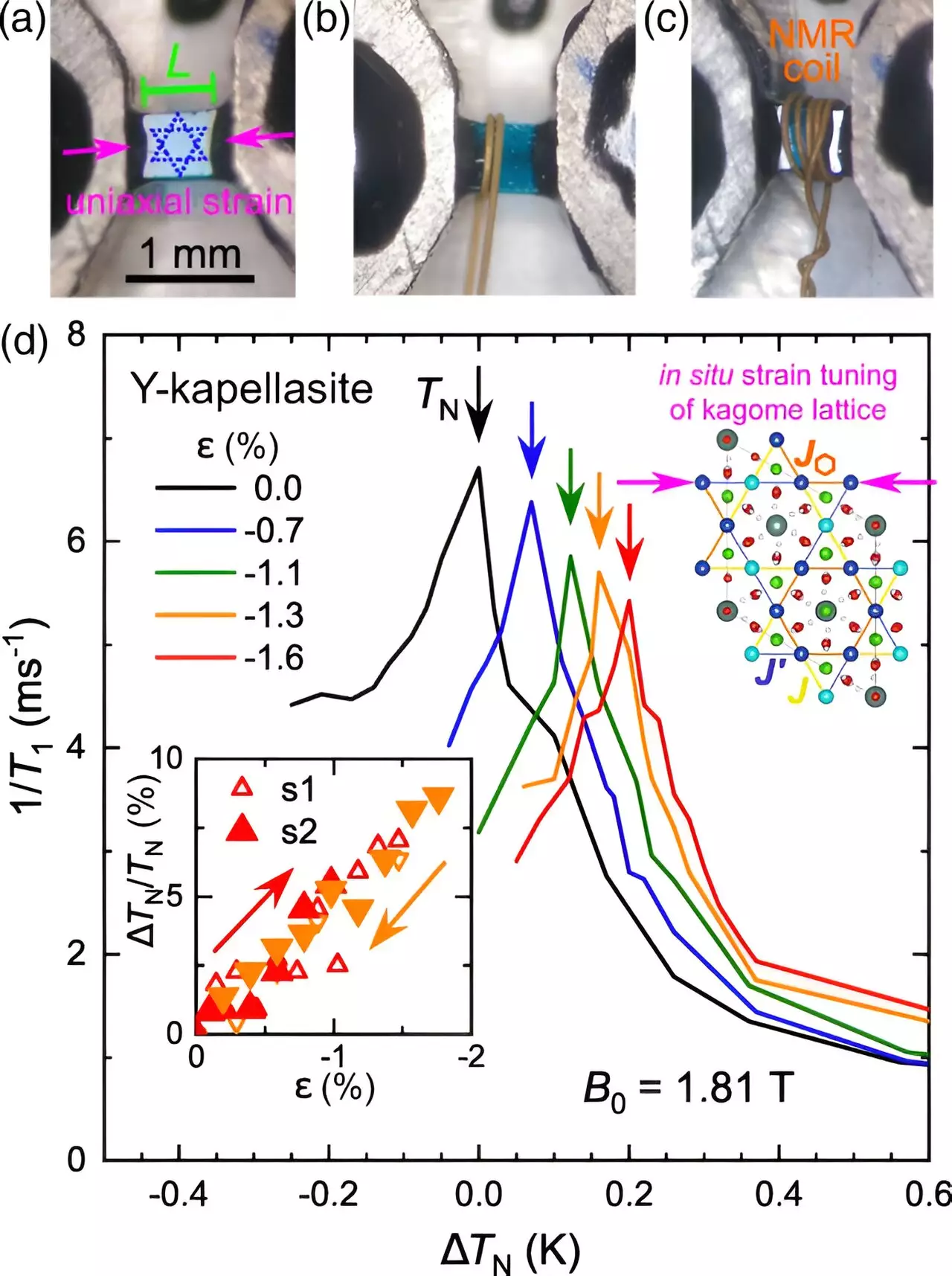Magnetism has captivated human curiosity for centuries and has paved the way for numerous technological advancements. Whether it’s compasses, electric motors, or generators, these inventions rely on ferromagnetism. However, as scientists delve deeper into the realm of fundamental research, they are increasingly exploring other forms of magnetism that have potential applications in secure data storage and quantum computing. One such form of magnetism is geometrical frustration, which occurs in crystal structures with triangular, kagome, or honeycomb lattices. Although this type of magnetism holds promise, controlling and manipulating it has proven to be a challenging task. In a groundbreaking study, an international team of researchers led by Professor Andrej Pustogow from TU Wien has achieved the remarkable feat of continuously changing the type of magnetism in a crystal by applying pressure.
Traditionally, magnetism arises from the behavior of electrons, either through their charge or the collective alignment of their magnetic moments. The research team, however, made a significant breakthrough by continuously altering the magnetic interactions in a single crystal via pressure. Published in Physical Review Letters, their findings provide new insights into the control and manipulation of magnetism.
While ferromagnetism has been extensively studied, the pursuit of novel forms of magnetism remains a complex endeavor. The study leader, Andrej Pustogow, acknowledges the difficulty of not only discovering new forms of magnetism but also gaining full control over them. In the case of geometrical frustration, the arrangement of electron spins in triangular or kagome lattices leads to multiple identical alternatives. This intricate arrangement results in randomly paired spins, some of which do not have a partner at all. These unpaired magnetic moments, if properly harnessed, could revolutionize data storage and computational operations in quantum computers.
The Challenge of Crystal Symmetry
For materials to exhibit ideal geometrical frustration, precise control over crystal symmetry and magnetic properties is crucial. While it is already possible to produce materials with strong geometrical frustration, the ability to continuously transition from weak to strong frustration within the same crystal has remained elusive. The researchers aimed to overcome this challenge by utilizing mechanical pressure to alter the crystal lattice and, consequently, the magnetic interactions.
By subjecting the crystal to uniaxial stress, the research team successfully deformed the kagome structure, inducing changes in the magnetic interactions between electrons. The concept was akin to real-life situations where stress reduces frustration by forcing a decision upon us, eliminating the need for active decision-making. Although the increase in the temperature of the magnetic phase transition may seem modest, exceeding 10% marks a significant achievement. To put it into perspective, a 10% increase in the freezing point of water would result in its solidification at 27°C, leading to drastic consequences for our world.
While reducing geometrical frustration through mechanical pressure was a remarkable feat, the research team now sets its sights on the opposite goal. By increasing frustration, the team aims to eliminate antiferromagnetism entirely and unlock the potential of a quantum spin liquid. This elusive state of matter holds great promise for various technological applications, and the ability to control its emergence through pressure manipulation opens up a realm of possibilities.
The ability to actively control material properties through uniaxial mechanical stress is an unprecedented breakthrough. It provides researchers with an undreamt-of level of manipulation and control over magnetism. Being able to “push a button” and modify the magnetic properties of a crystal opens up new avenues for technological advancements and scientific discoveries. As the study leader, Andrej Pustogow, aptly summarizes, this research grants access to previously unimaginable manipulations of material properties.
The study led by Professor Andrej Pustogow and his international research team marks a significant milestone in the realm of magnetism. By utilizing pressure to change the type of magnetism in a crystal, the researchers have opened new doors for scientific exploration. The ability to control the emergence and manipulation of geometrical frustration paves the way for advancements in secure data storage and quantum computing. As scientists continue to unravel the mysteries of magnetism, this groundbreaking research stands as a testament to human ingenuity and the desire to push the boundaries of scientific knowledge.



Leave a Reply